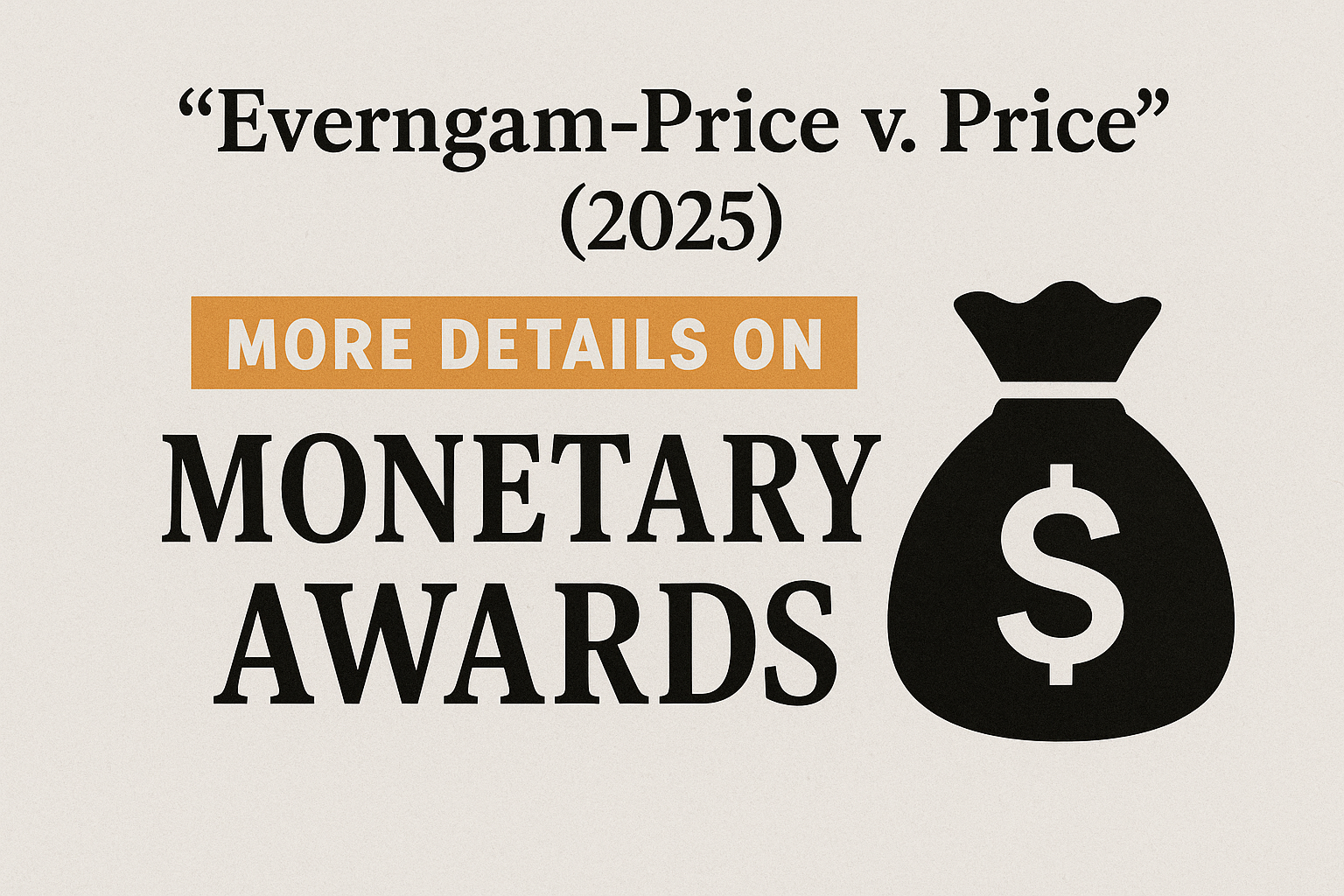We’ve discussed property division at considerable length here on our blog. We’ve discussed the various aspects of property division – the classification of property as either marital or non-marital, the impact of commingling non-marital and marital assets, dissipation of assets, the impact of cruelty or other problematic behaviors, and so forth. What we haven’t talked about at length are the factors which may justify a lump sum monetary award in the course of dividing marital assets. In some instances, in order to balance out the distribution of assets, a Maryland court may grant a monetary award to one party. The monetary award may be any amount, the exact amount will depend on the specifics of the case.
The recent case of Everngam-Price v. Price (2025) involved the granting of a lump sum monetary award to the husband. The court reviewed the factors involved in the process for determining awards under Section 8-205(b). The crux of the case was that the husband had accumulated a sizable retirement account which justified a monetary award.
Let’s examine this case in detail.
Factual Background
The parties in this case married in 1993 and then divorced in 2022. During the property division phase of the divorce, several issues came to prominence. Among these issues were the disposal of the marital home, the sale of the couple’s business, and the equitable division of the remaining marital assets. One of the key assets under scrutiny by the court was an Ameritrade account which contained both marital and allegedly non-marital assets. The marital portion of that account was not disputed – there was no question that the couple held marital assets in that particular account, but the non-marital portion was in question.
The husband had apparently deposited the proceeds from another retirement account into this Ameritrade account when he lost his previous job. The husband claimed that these retirement benefits were non-marital, and he presented evidence at trial to support this contention. The trial court determined that the non-marital and marital assets of this account had been inextricably commingled, and that as a consequence the entire account was marital property. But, in order to avoid an unfair result, the husband was entitled to a lump sum monetary award in the amount of $120,000. The wife then appealed.
Ruling & Post-Ruling Discussion
The appellate division upheld the trial court’s determination. In its opinion, the appellate court systematically reviewed the legal mechanisms which may lead to a lump sum monetary award. Granting a monetary award is based on a three step procedure, and the third part of this procedure is a determination regarding the fairness or equity of such an award. To make this determination on fairness or equity, the court references the statutory factors outlined under Section 8-205(b). In total, there are 11 factors outlined under this section, and the court went over all these factors in its review. One of the factors is the recognition of non-marital contributions brought into the marriage. In this case, even though the husband’s alleged non-marital assets had been commingled with marital assets, equity demanded that the husband receive an award to balance out these numbers. The trial court believed that allowing these assets to be divided in a straightforward 50% / 50% fashion would simply be inequitable, and the appellate court agreed.
Cases such as these clearly demonstrate the importance of having a qualified family law attorney on your side in a Maryland divorce. This is particularly true when there are complex property division issues on the table.
Contact the Murphy Law Firm for More Information
To learn more about the effect of commingling assets, the 11 factors under Section 8-205(b), monetary awards to avoid inequitable outcomes, property division in general in Maryland, or any other relevant family law matter, contact one of the family law attorneys at the Murphy Law Firm today by calling 240-219-1187.







.webp)











